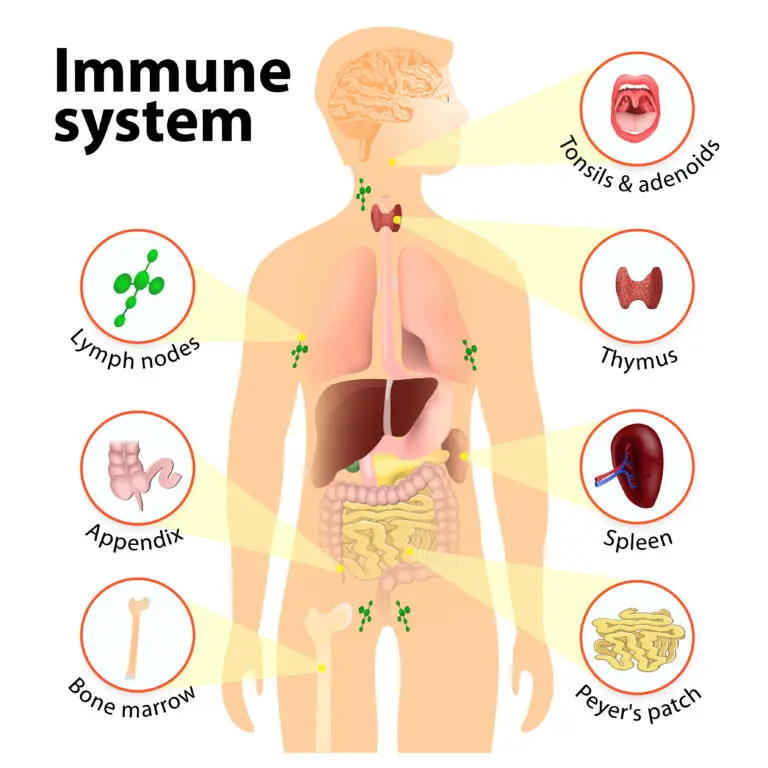Immune System

Table of Contents
What is the Immune System
The immune system is a complex network of cells, tissues, organs, and molecules that work together to defend the body against pathogens like bacteria, viruses, fungi, and other foreign invaders. Its primary function is to recognize and eliminate harmful substances, including infectious agents and abnormal cells, while distinguishing them from the body’s healthy cells.
Functions of the Immune System
White Blood Cells (Leukocytes)
White blood cells are key players in the immune system. Different types of white blood cells, including phagocytes (such as macrophages and neutrophils) that engulf and digest pathogens, and lymphocytes (T cells and B cells) that play crucial roles in immune responses.
Lymphatic System
The lymphatic system is a network of vessels, nodes, and organs that transport lymph (a fluid containing white blood cells) throughout the body. Lymphatic organs, such as lymph nodes, tonsils, and the spleen, house immune cells and contribute to immune function.
Bone Marrow
The bone marrow is responsible for producing blood cells, including white blood cells. It serves as a primary site for the generation of immune cells.
Thymus
The thymus is an organ located above the heart that is involved in the maturation and differentiation of T lymphocytes (T cells), a type of white blood cell important for cellular immunity.
Spleen
The spleen acts as a blood filter and reservoir for immune cells. It plays a role in removing old or damaged blood cells and initiating immune responses against blood-borne pathogens.
Antibodies and Immunoglobulins
Antibodies (also known as immunoglobulins) are proteins produced by B cells. They recognize and bind to specific pathogens, marking them for destruction or neutralization by other immune system components.
Immunization
Immunization or vaccination is a strategy to stimulate the immune system’s memory and provide protection against specific diseases. Vaccines contain antigens that trigger an immune response, leading to the production of memory cells.
Autoimmunity and Immune Disorders
Sometimes, the immune system may mistakenly target the body’s cells, leading to autoimmune disorders. Conversely, immunodeficiency disorders result from a weakened or impaired immune system.
Related Links
Anatomy
Antibody
Parasite
Vaccine